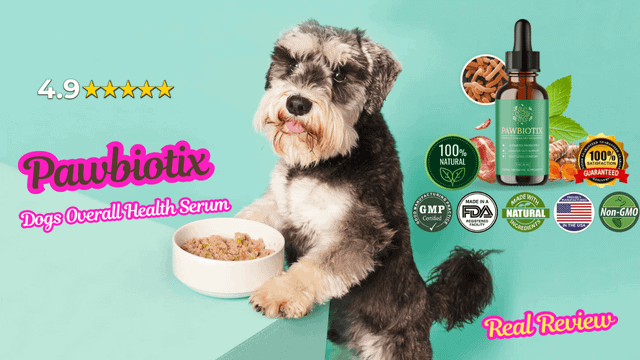
Holistic Hope for Dogs with Cushing’s: Exploring Natural Supplements for Relief
$69.00
Discover natural supplements that can support dogs with Cushing’s syndrome. Explore the benefits of antioxidants, adaptogens, and herbs that may improve their well-being and quality of life. Learn how natural remedies can complement conventional treatments to provide a holistic approach for your furry companion.
Description
Natural Supplements for Dogs with Cushing’s Syndrome: A Comprehensive Guide
H1: Understanding Cushing’s Syndrome in Dogs
Cushing’s syndrome, a hormonal disorder, occurs when the body produces excessive amounts of cortisol, a steroid hormone that regulates various bodily functions. In dogs, Cushing’s syndrome can develop either due to a tumor on the pituitary gland (pituitary-dependent) or on the adrenal glands (adrenal-dependent).
Dogs with Cushing’s syndrome often exhibit a range of symptoms, including increased thirst and urination, weight gain, thinning skin, increased susceptibility to infections, and lethargy. While conventional treatment options focus on suppressing cortisol production, natural supplements can provide complementary support to manage the condition.
H2: Natural Supplements for Cushing’s Syndrome
Numerous natural supplements have been studied for their potential benefits in supporting dogs with Cushing’s syndrome. These supplements can help alleviate symptoms, improve overall well-being, and potentially enhance the effectiveness of conventional treatments.
Adrenal Glands and Cortisol Regulation
- Holy Basil (Tulsi): Holy basil has adaptogenic properties that support the adrenal glands and help regulate cortisol levels. It also possesses anti-inflammatory effects.
- Ashwagandha: This herb promotes adrenal gland health and helps balance cortisol secretion. It also has antioxidant and anti-inflammatory properties.
- Shatavari: Shatavari nourishes and supports the adrenal glands, aiding in hormonal balance. It also has a calming effect on the nervous system.
Inflammation and Immune Support
- Curcumin: The active ingredient in turmeric, curcumin possesses powerful anti-inflammatory properties that can help reduce inflammation associated with Cushing’s syndrome.
- Boswellia: Boswellia, an Ayurvedic herb, has anti-inflammatory and analgesic effects that can alleviate joint pain and stiffness.
- Green Tea Extract: Rich in antioxidants, green tea extract helps protect against oxidative damage and supports the immune system.
Liver and Kidney Support
- Milk Thistle: Milk thistle supports liver health and protects against damage caused by elevated cortisol levels.
- Dandelion Root: Dandelion root helps detoxify the liver and promote kidney function.
- Parsley: Parsley is a natural diuretic that can help reduce fluid retention associated with Cushing’s syndrome.
Other Beneficial Supplements
- Vitamin C: An antioxidant that supports the immune system and helps reduce inflammation.
- Vitamin E: Another antioxidant that protects cells from damage.
- Omega-3 Fatty Acids: These essential fatty acids help reduce inflammation and support joint health.
H3: Selecting and Using Supplements for Cushing’s Syndrome
When selecting supplements for dogs with Cushing’s syndrome, it’s crucial to consult with a holistic veterinarian who understands the condition and can recommend appropriate supplements. Factors to consider include:
- Type of Cushing’s syndrome: Pituitary-dependent and adrenal-dependent Cushing’s syndrome may require different supplement protocols.
- Severity of symptoms: The severity of symptoms will influence the type and dosage of supplements needed.
- Individual dog’s needs: Each dog may respond differently to supplements, so it’s essential to observe the effects and adjust accordingly.
It’s important to note that supplements should not be used as a substitute for veterinary care. Conventional treatments remain the mainstay of managing Cushing’s syndrome, and natural supplements should be used as complementary therapies under the guidance of a qualified veterinarian.
H3: Cautions and Interactions
Some natural supplements for Cushing’s syndrome may interact with prescription medications or have potential side effects. Therefore, it’s essential to:
- Inform the veterinarian: Disclose all supplements being given to the dog to avoid any potential interactions.
- Start with low doses: Gradually increase the dosage of supplements over time to minimize the risk of side effects.
- Monitor the dog closely: Observe the dog’s response to supplements and report any changes in symptoms or behavior to the veterinarian.
Conclusion
Natural supplements can provide valuable support for dogs with Cushing’s syndrome. By understanding the condition, selecting appropriate supplements, and using them under veterinary guidance, owners can help improve their dog’s overall well-being, enhance the effectiveness of conventional treatments, and support their furry companion’s journey through Cushing’s syndrome.



